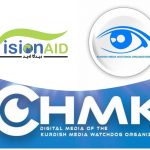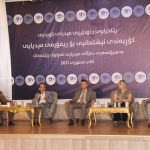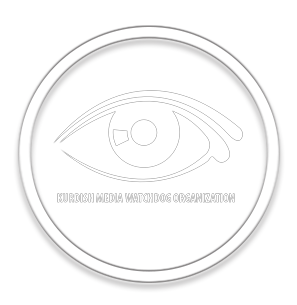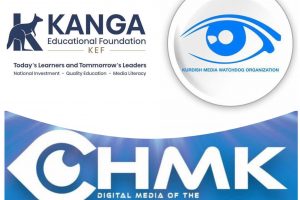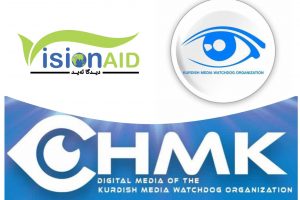Shwan Adam Aivas as a Kurdish researcher has firstly published his PhD thesis on CHMK Website entitled: Kurdish Journalism Cultures; Shifting Boundaries of Privacy Understandings amongst Professional Role Orientations of Journalists. This thesis has been submitted on 10 April 2017 in partial fulfilment of the requirements for the school of Arts and Humanities at British Nottingham Trent University for the Degree of Doctor of Philosophy in Communication, Culture, and Media Studies. In his doctoral thesis, Dr Aivas stated that:
“This doctoral dissertation is an inquiry into the “role perceptions” of media workers in understanding and professionally dealing with violations of personal privacy in one of the post-conflict regions in the Middle East. By examining the phenomenon of media intrusion into people’s private lives in the Kurdistan Region of Iraq, this thesis aims to identify the relationships between shifting boundaries of privacy understandings and professional role orientations of Iraqi Kurdish journalism cultures. This research project explores the multiple linkages between the concepts of privacy and professionalism in journalism cultures based on 142 survey questionnaires and 15 in-depth interviews. This study involves prominent media policymakers, academics, experts, and leading journalists along with selected participants with an editorial responsibility in media organizations, including senior managers, junior managers, and non-management staff of different gender, age, occupation, political affiliation, and length of practice in Kurdish journalism. It also seeks to understand and rethink how information privacy invasions may be rethought in some cases by promoting the professional role orientations of journalists, particularly when they need access to private information to do their daily journalistic work. It also explores to what extent Kurdish journalists use their professional ideology, social and political status, along with position, to invade the privacy of ordinary people, celebrities, and public figures in the case study of Kurdistan in Northern Iraq. Ethical theories and the adopted Priority Model of information privacy have been applied in examining the professional activities of Kurdish journalists toward their acquisition and revelation of pieces of private information that could constitute an invasion of privacy. The key theories of Mill’s negative and positive liberties, new-Gramscian conceptions of hegemony, and Habermas’s national democratic public sphere have also influenced this study.
The data analysis of this study shows that the notions of information privacy and journalistic professionalism have an inadequate theoretical, legislative basis in public debates in the Kurdish media landscape so far. While there are mixed and ambiguous interpretations of respect for individuals’ private life amongst Iraqi Kurdish journalism cultures to date, the Populist Disseminator and Detached Watchdog are the most predominant models in this fragile region. This is one of the deepest insights of this study that portrays the reality of current Iraqi Kurdish society, where partisanship dominates and professionalism is subordinated as a result of the distribution of media ownership – and consequently the ownership of privacy – since the news organizations and their media workers are dominated and frequently used by the prominent political ruling parties. They also aim to silence opposition voices in Iraqi Kurdish society by using various practices, such as gathering and revealing the information privacy. The right to free speech, media freedom, journalistic professionalism, and the right to be free from unwarranted social and political surveillance is still too limited due to several barriers, including political and media transitions from dictatorship to democracy and the lack of a media industry in terms of ownership, regulation, and education. Without gaining the support of particular political parties and their affiliation, the hegemony of the journalist’s professional role does not apply, and has been open to abuse by different methods from time to time, particularly during the political crisis and the general election campaigns; there are no free environment for good journalism practices and no guarantees for professional journalists. The current power dynamic of media ownership and the rapidly growing technologies of convergent journalism practices that produce and reproduce the contemporary vision of the Kurds and Kurdistan in Kurdish journalism cultures are studied extensively. The aim is to offer a deep insight into the issues related to journalistic professionalism and information privacy in an increasingly fragile and fragmented post-conflict society. In the meantime, this doctoral dissertation makes a valuable contribution to existing knowledge by transferring and updating the global debates beyond convergence culture and cultural hegemony. In addition to the traditional critiques of professionalism in journalism, it also contributes to current civil liberties debates over the right to an individual’s privacy weighed against the public’s right to know. Therefore, to facilitate further studies on the daily evolutions of cultural convergence and convergent journalism practices, several recommendations have been suggested in the final conclusions of this research project.”



